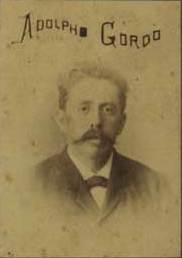
The Adolfo Gordo Law (Decree No. 1641/1907) was a measure to repress labor movements in São Paulo at the beginning of the 20th century.[1] Among other provisions, it proposed the expulsion of foreigners involved in strikes with the objective of repressing anarchist and anarcho-syndicalist militants. It was suggested by Adolfo Gordo, a federal deputy from São Paulo, and approved in 1907. According to historian Claudio Batalha in his book O Movimento Operário na Primeira República, under this law, 132 foreigners were expelled in the first year, a high number compared to the 556 expulsions between 1908 and 1921. Later, in 1919, came the Law on Accidents at Work, which guaranteed compensation for workers, laborers or apprentices in the event of injuries in services using machinery.[2][3][4]
In 1923, now as a senator, Gordo created another bill, also nicknamed the Adolfo Gordo Law, but with the aim of censoring the press; as a result, it earned the nickname "infamous law" in journalistic circles. To some extent, it also had contributions from Azevedo Marques, who was Minister of Foreign Affairs at the time. Three traits unite all the projects that carried the politician's name: defense of economic interests, governability and maintaining social peace.[5][4]
- ^ "DECRETO Nº 1.641, DE 7 DE JANEIRO DE 1907". Federal Government of Brazil. Retrieved 2023-11-17.
- ^ "DECRETO Nº 4.247, DE 6 DE JANEIRO DE 1921". Federal Government of Brazil. Retrieved 2023-11-17.
- ^ "DECRETO Nº 3.724, DE 15 DE JANEIRO DE 1919". Federal Government of Brazil. Retrieved 2023-11-17.
- ^ a b Gordo, Adolfo Afonso da Silva (1918). A Expulsão de Estrangeiros. Espindola & Comp.
- ^ "DECRETO Nº 4.743, DE 31 DE OUTUBRO DE 1923". Federal Government of Brazil. Retrieved 2023-11-17.